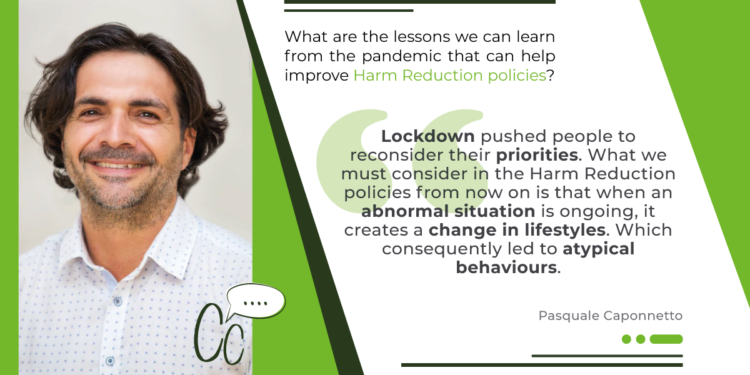As the second wave of Covid-19 infection hits worldwide, and a new lockdown is in sight, the challenges and psychological strains on people are rising too. What are the lessons we can learn from the COVID-19 pandemic by a psychological point of view? Our first interview for Ask the Expert will discuss it.
Pasquale Caponnetto, Professor of Clinical Psychology from DISFOR the University of Catania and CoEHAR’s researcher, answer the questions for CC.
Dr Caponnetto, consequently the Covid-19 pandemic and the restrictions the population (and the smokers) have been through, what this unprecedented situation has emphasised?
Results of previous research that I have conducted during the very first phase of the Covid-19 outbreak highlighted some significant dynamics. We analyzed the smoking behaviour and noticed that smokers did not change so much the consumption, but the way they bought the products. Many smokers stockpiled, as happened with flour and starch and other basic goods. A protection mechanism on the things they were most attached to, which highlighted how the smokers were afraid of being left without. From a psychological point of view, it explains the need to remain attached to something that gives you a daily routine and a rituality in life. In moments of excessive happiness or excessive unhappiness, this protective tool can give relief in the event of extreme isolation. It was a mechanism of attachment to something that you consider basic. The smoker is very attached to the cigarette, this is a factor we cannot ignore in treating smokers. The cigarette represents the normality of everyday life.
According to the findings of your research, traditional cigarette users have a greater interest in quitting smoking compared to vapers. Do you think electronic cigarettes or other substitutes for combustion cigarettes avoid worse consequences in smokers?
The results of the study have shown a different attitude of smokers towards low-risk products and the alternatives that can facilitate the reduction of treatments up to the total cessation. We have this accumulation behaviour on the one hand, and people who thought to quit smoking on the other hand. The better results with E-cig users is because they are former smokers, which have partly tamed already the addiction for traditional cigarettes.
What are the lessons we can learn from this global pandemic regarding human and smoking behaviours that can help improve Harm Reduction policies?
With the lockdown and forced closure, people had time to truly reflect on what is crucial in life both from a cognitive and emotional point of view. People then manage to appreciate things that we normally took for granted. What we must consider in the Harm Reduction policies from now on is that when an abnormal situation is ongoing, it creates a change in lifestyles. Which consequently led to atypical behaviours. Eventually, we will see the outcomes of this situation in post-traumatic effects.




